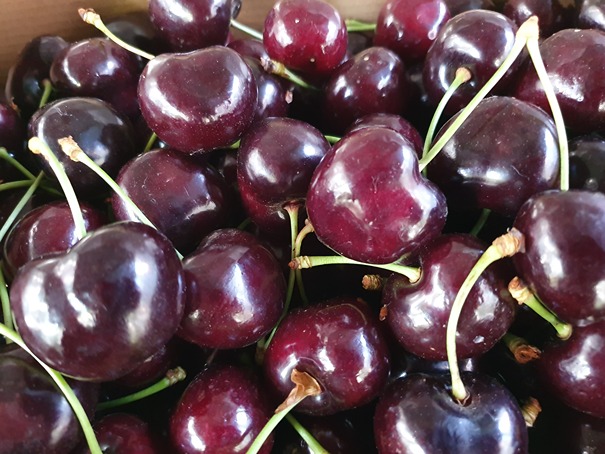Seaweed-based biostimulants, including those extracted from Ascophyllum nodosum, Ecklonia maxima, Laminaria digitata/Laminaria japonica, Sargassum and Enteromorpha prolifera, are essential for regulating plant growth and development, improving tolerance to abiotic stresses and enhancing plant hormonal activity.
Studies have already shown that these extracts, especially those obtained from Ascophyllum nodosum, were effective in increasing the weight and diameter of ‘Sweetheart’ cherries and in reducing the incidence of cracking in cherries (e.g. in cv. ‘Skeena’). Other authors reported that pre-harvest applications of algae extracts did not affect flesh firmness, total acidity or fruit size of ‘Staccato’ cherries at harvest.
However, the treatment had a significant impact on the accumulation of soluble solids, increased vitamin C levels and the promotion of fruit colouration. This prompted the development of a new approach for a combined treatment with algae extracts and gibberellin, for which there are currently no defined protocols.
The aim of the study conducted at Qinghai University (China) was to test whether seaweed-based biostimulants have the ability to counteract delayed fruit ripening and improve the antioxidant properties and quality of cherries treated with gibberellic acid.
In medium-ripening ‘Bing’ cherries, the application of 5 g/L of seaweed extracts during the stone hardening phase and one week before harvest accelerated colour development, increased soluble solids content, titratable acidity, total phenols and antioxidant activity at harvest, compared to the control. However, the fruits were smaller and more delicate following these treatments.
Treatment with algae extracts did not affect the colouration of the late-ripening ‘Lapins’ cherries; however, it increased antioxidant levels and antioxidant capacity at harvest, particularly when three applications were made during the season. The firmness and size of ‘Bing’ cherries were significantly increased with three applications of 5 g/L algae extracts and a single application of 10 mg/L gibberellic acid.
However, the combined treatment had a significant retarding effect on colour development and sugar content at harvest, and fruit resistance to post-harvest disorders was reduced after four weeks of storage at 0°C when the fruit was harvested late.
It was noted that the retarding effect of gibberellic acid on fruit ripening may be impaired and normal fruit size could be restored by decreasing the concentration of gibberellic acid from 10 to 5 mg/L, increasing the concentration of algal extracts from 5 to 10 g/L and extending the harvest date by 5 days.
In summary, the potential to reduce the inhibition of gibberellic acid on fruit ripening, extend the harvest window, improve fruit quality and increase the antioxidants and antioxidant capacity of ‘Bing’ and ‘Lapins’ cherries was confirmed in this study, thanks to applications of algae extracts and one with gibberellic acid.
Sourcee: Huanhuan Zhi, Yu Dong, Seaweed-based biostimulants improves quality traits, postharvest disorders, and antioxidant properties of sweet cherry fruit and in response to gibberellic acid treatment, Scientia Horticulturae, Volume 336, 2024, 113454, ISSN 0304-4238, https://doi.org/10.1016/j.scienta.2024.113454.
Image: Lamotte Oils
Melissa Venturi
University of Bologna (IT)
Cherry Times - All rights reserved











